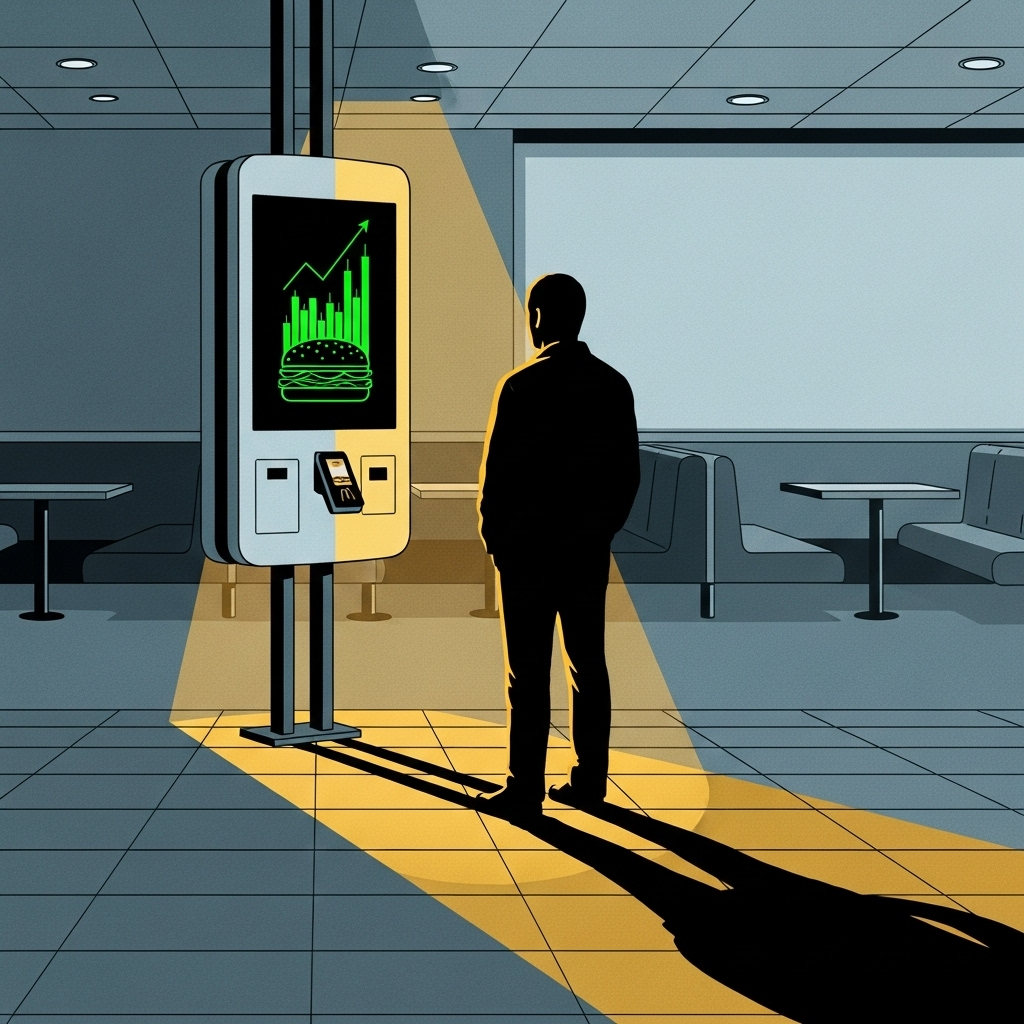Executive Summary
This report analyzes the history and impact of McDonald’s self-service kiosk implementation in the United States. The nationwide rollout began in 2015. It was formalized under the multi-billion dollar “Experience of the Future” (EOTF) initiative. This represented a pivotal corporate strategy to combat sales stagnation and modernize a dated brand image.¹
The strategy was a financial success. It was driven by increased order accuracy and a 20-30% lift in average check size.² However, this technological shift created a significant paradox. The pursuit of digital efficiency came at the cost of human connection and straightforward service.
While promising convenience, the kiosks have often been a source of frustration. Customers report flawed hardware, confusing user interfaces, and technical failures.³ More profoundly, the kiosk-first model has depersonalized the in-restaurant environment. This has alienated a segment of the customer base that values human interaction.
This shift also redefined the role of the McDonald’s employee. The company reallocated labor from traditional cashier duties to new roles. These new positions, such as the “Guest Experience Leader,” focus on managing technology and fulfilling a complex stream of digital orders.⁴ This change contributes to the perception of diminished personal service.
Ultimately, the McDonald’s kiosk revolution serves as a critical case study for the service industry. It illustrates the profound challenges of balancing technological innovation with the enduring customer need for a human touch.
(more…)
